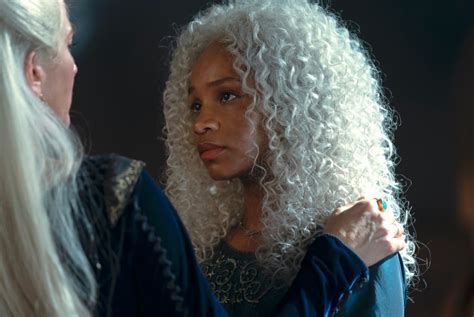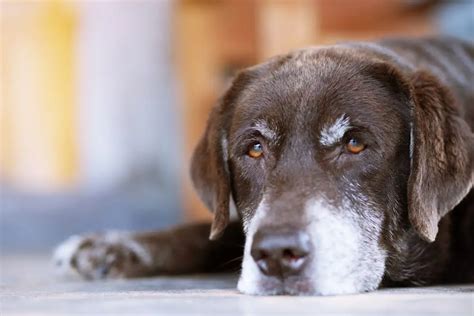
A red tortie Maine Coon kitten named Roux is captivating audiences worldwide with her striking looks, causing a viral sensation across social media platforms.
Roux, a four-month-old kitten boasting a distinctive red tortie coat, has become an internet phenomenon due to her captivating appearance and the dedicated social media presence managed by her owner. Her photos and videos have garnered millions of views and countless shares, solidifying her status as the latest feline internet sensation.
The kitten’s owner, whose identity has been kept private, initially created an Instagram account (@rouxthemainecoon) to share photos and videos of Roux with friends and family. However, the account quickly gained traction, attracting a massive following drawn to Roux’s unique markings and playful personality. As of today, Roux’s Instagram account boasts hundreds of thousands of followers and each post garners thousands of likes and comments.
“I started the account as a fun way to share photos and videos of Roux with my friends and family,” the owner said in an interview. “I never imagined she would become so popular. It’s been amazing to see so many people connect with her.”
Roux’s striking red tortie coat is a defining feature. The term “tortie” refers to a tortoiseshell pattern, a mix of reddish and black or brown hues, which is a genetic trait predominantly found in female cats. Combined with the large size and distinctive features of the Maine Coon breed, Roux’s appearance is particularly striking and unusual. Maine Coons are known for their substantial size, long fur, bushy tails, and friendly personalities, making them one of the most popular cat breeds worldwide.
The combination of Roux’s unique coloring and breed characteristics has resonated with cat lovers and social media users alike. Her images showcase her playful antics, expressive eyes, and luxurious coat, all of which contribute to her widespread appeal. Commenters frequently praise her beauty, comparing her to a tiny lion or a mythical creature.
“She’s absolutely gorgeous!” one commenter wrote on Instagram. “Her coloring is so unique, and she looks like a little lion.”
Another commenter added, “I’ve never seen a cat quite like her. She’s truly special.”
The viral success of Roux highlights the enduring fascination with cats on the internet. From Grumpy Cat to Lil Bub, felines have consistently captured the hearts of online audiences, becoming viral sensations and cultural icons. Their quirky personalities, adorable appearances, and relatable behaviors make them ideal subjects for memes, videos, and social media posts.
Experts suggest that the popularity of cats online is partly due to their ability to provide comfort and companionship, especially in an increasingly digital and often isolating world. Their antics offer lighthearted entertainment and a welcome distraction from the stresses of daily life. Additionally, the ease with which their images and videos can be shared across platforms contributes to their widespread dissemination.
“Cats have a unique ability to connect with people on an emotional level,” says Dr. Sarah Miller, a veterinary behaviorist. “Their independence and playful nature appeal to many, and their online presence provides a sense of community for cat lovers worldwide.”
Roux’s rise to fame also underscores the power of social media in shaping popular culture and creating overnight celebrities. Platforms like Instagram, TikTok, and YouTube provide a direct channel for pet owners to showcase their animals to a global audience, bypassing traditional media gatekeepers. This has led to a surge in the number of animal influencers, who often collaborate with brands and earn significant income through sponsorships and merchandise.
While Roux’s owner remains anonymous, they have expressed gratitude for the outpouring of support and affection from Roux’s online fans. They regularly update the Instagram account with new photos and videos, providing a glimpse into Roux’s daily life and further fueling her popularity.
The story of Roux the red tortie Maine Coon kitten serves as a reminder of the internet’s capacity to transform ordinary animals into extraordinary celebrities. Her beauty and charm have captivated audiences worldwide, bringing joy and entertainment to millions of people. As her online following continues to grow, Roux is poised to remain a prominent figure in the world of internet cats, inspiring smiles and admiration for years to come.
Beyond the immediate viral sensation, Roux’s story also raises broader questions about the ethics of pet ownership and the potential for exploitation in the world of animal influencers. While many pet owners genuinely enjoy sharing their animals with the world, it’s important to consider the well-being of the animals involved and ensure that their needs are being met.
Experts caution against prioritizing online fame over the health and happiness of pets, emphasizing the importance of responsible pet ownership and ethical social media practices. This includes providing adequate care, attention, and veterinary care, as well as protecting animals from harassment or exploitation.
In Roux’s case, her owner appears to be dedicated to her well-being, providing her with a loving home and plenty of opportunities for play and socialization. However, the pressures of maintaining a popular social media account can be demanding, and it’s crucial to strike a balance between online engagement and real-life care.
The long-term impact of internet fame on animals like Roux remains to be seen. While it can provide opportunities for financial gain and brand partnerships, it can also lead to increased attention and scrutiny, potentially impacting the animal’s quality of life.
Ultimately, Roux’s story is a testament to the power of the internet to connect people and create communities around shared interests. Her beauty and charm have brought joy to millions of people worldwide, and her viral success has cemented her place in the pantheon of internet cats. As her story continues to unfold, it will be important to consider the broader implications of animal influencers and ensure that their well-being is prioritized above all else.
The popularity of Maine Coon cats as pets has also seen a surge in recent years, partly fueled by the breed’s photogenic qualities and their prominence on social media platforms. Breeders report increased demand for Maine Coon kittens, with waiting lists often stretching several months.
However, experts caution against impulse purchases driven by online trends, emphasizing the importance of researching the breed and ensuring that it’s a good fit for one’s lifestyle and living situation. Maine Coons are large, active cats that require plenty of space, attention, and grooming. Potential owners should be prepared to commit to their needs for the duration of their lives.
“Maine Coons are wonderful cats, but they’re not for everyone,” says Dr. Miller. “They require a lot of attention and care, and it’s important to be prepared for that commitment before bringing one home.”
Roux’s story also highlights the importance of responsible breeding practices. Reputable breeders prioritize the health and temperament of their cats, conducting genetic testing to screen for potential health problems. They also provide a nurturing environment for their kittens, ensuring that they are well-socialized and prepared for life in a new home.
Potential Maine Coon owners should be wary of breeders who prioritize profit over the well-being of their cats, as this can lead to health problems and behavioral issues. It’s always best to visit the breeder’s premises, meet the parent cats, and ask plenty of questions before making a purchase.
The internet’s fascination with cats extends beyond their physical appearance and into their quirky personalities and relatable behaviors. Cats are often portrayed as independent, aloof, and somewhat mysterious creatures, which adds to their appeal. Their antics, such as chasing laser pointers, batting at dangling objects, and squeezing into small spaces, provide endless entertainment for their owners and online audiences alike.
The rise of cat memes has also contributed to their popularity, with images and videos of cats being used to express a wide range of emotions and situations. From the classic “Grumpy Cat” meme to the more recent “Woman Yelling at a Cat” meme, cats have become a versatile and ubiquitous form of online communication.
“Cats are incredibly expressive animals, and their facial expressions and body language can be surprisingly relatable,” says Dr. Miller. “This makes them ideal subjects for memes and other forms of online humor.”
The anonymity afforded by the internet also allows people to express their love for cats without fear of judgment. In some cultures, cat ownership is viewed as less desirable than dog ownership, but the internet provides a safe space for cat lovers to connect and share their passion.
The community aspect of online cat groups is particularly important for those who may feel isolated or marginalized in their real lives. These groups provide a sense of belonging and support, allowing cat owners to share their experiences, ask for advice, and celebrate the joys of cat ownership.
Roux’s story is a microcosm of the larger phenomenon of cat culture on the internet. Her beauty, charm, and playful personality have resonated with millions of people worldwide, and her viral success has cemented her place in the pantheon of internet cats. As her story continues to unfold, it will be interesting to see how she continues to inspire and entertain her online audience.
The popularity of Roux also brings attention to the ethical considerations surrounding the creation and consumption of online content featuring animals. While many people enjoy watching videos and looking at pictures of cute animals, it’s important to consider the potential impact on the animals themselves.
Some animal rights activists argue that the use of animals for entertainment, even in seemingly harmless ways, can be exploitative. They argue that animals should not be subjected to stress or discomfort for the sake of human amusement.
Others argue that the benefits of animal-related content, such as raising awareness about animal welfare issues and promoting responsible pet ownership, outweigh the potential risks. They argue that as long as the animals are treated with respect and their needs are met, there is no harm in sharing their images and videos online.
Ultimately, the ethical implications of animal-related content are complex and nuanced. It’s important for content creators to be mindful of the potential impact on the animals involved and to prioritize their well-being above all else.
It’s also important for consumers to be critical of the content they consume and to support content creators who are ethical and responsible. This includes avoiding content that appears to exploit or endanger animals and supporting organizations that advocate for animal welfare.
Roux’s owner, for example, has taken steps to ensure that Roux’s online presence is not exploitative. They avoid dressing her up in costumes or forcing her to perform tricks, and they always prioritize her comfort and well-being.
They also use Roux’s platform to raise awareness about responsible pet ownership and to promote animal adoption. This demonstrates a commitment to ethical social media practices and a desire to use Roux’s fame for good.
The story of Roux the red tortie Maine Coon kitten is a complex and multifaceted one. It’s a story about beauty, fame, and the power of the internet. It’s also a story about ethics, responsibility, and the importance of prioritizing the well-being of animals.
As Roux’s story continues to unfold, it will be important to continue to grapple with these complex issues and to strive to create a more ethical and compassionate online world for animals.
The internet has undeniably changed the landscape of pet ownership, creating new opportunities for connection, community, and even celebrity. However, it’s crucial to remember that pets are not simply objects of entertainment or sources of online validation. They are living beings with their own needs, desires, and intrinsic value.
The responsible use of social media can be a powerful tool for promoting animal welfare and celebrating the unique bond between humans and animals. However, it’s essential to approach this new frontier with caution, mindfulness, and a deep respect for the animals we share our lives with.
Roux’s legacy, hopefully, will be one that inspires not only admiration for her beauty but also a greater appreciation for the responsibility that comes with being a pet owner in the digital age. Her story serves as a reminder that true love and care for animals should always be prioritized above fleeting internet fame.
FAQ: Roux, the Red Tortie Maine Coon Kitten
Q1: What is a red tortie Maine Coon?
A1: A red tortie Maine Coon refers to a Maine Coon cat with a tortoiseshell coat pattern that includes red or orange hues mixed with darker colors. The “tortie” pattern is a genetic trait predominantly found in female cats. Maine Coons are a large, long-haired breed known for their friendly personalities, and the combination of the breed and the coloring creates a striking and unique appearance. Roux has captured attention with her red tortie coloration, setting her apart from other cats and contributing to her viral fame. The term “tortoiseshell” refers to the mottled mix of colors, and in Roux’s case, it is dominated by red tones, making her particularly visually appealing.
Q2: Why is Roux so popular on the internet?
A2: Roux’s popularity stems from a combination of factors. First, her unique appearance as a red tortie Maine Coon is visually striking and captivating. The rarity of the coloration, combined with the breed’s already impressive size and features, makes her stand out. Second, her owner has created a dedicated and engaging social media presence, regularly posting high-quality photos and videos that showcase her playful personality and beauty. This consistent stream of content keeps her followers engaged and attracts new fans. Third, the internet has a long-standing fascination with cats, and Roux fits the mold of an adorable and relatable feline that can easily go viral. Her story highlights the power of social media to turn ordinary pets into internet sensations.
Q3: How does Roux’s owner manage her social media fame?
A3: Roux’s owner maintains a consistent presence on her Instagram account (@rouxthemainecoon), regularly posting new photos and videos of Roux. They interact with comments and messages, fostering a sense of community among Roux’s followers. The owner has also chosen to remain anonymous, focusing the attention on Roux herself. While they haven’t extensively collaborated with brands, they have allowed Roux’s image to be used in ways that do not exploit her and align with ethical animal content creation. The key is maintaining engaging content while ensuring Roux’s well-being is the top priority. The owner ensures Roux is comfortable and not stressed by the process of taking photos and videos, and they prioritize her health and happiness above all else.
Q4: What are the ethical considerations of having a pet become an internet celebrity?
A4: The ethical considerations are multifaceted. It is important to ensure the animal’s well-being is not compromised for the sake of content creation. This includes avoiding stressful situations, providing adequate care and attention, and protecting the animal from harassment or exploitation. There is also a responsibility to promote responsible pet ownership and avoid perpetuating unrealistic expectations. Fame can also bring unwanted attention, so it’s crucial to protect the animal’s privacy and safety. Balancing the benefits of sharing an animal’s story with the potential risks requires careful consideration and a commitment to ethical practices.
Q5: How has Roux’s popularity affected the Maine Coon breed?
A5: Roux’s popularity has likely contributed to an increased interest in Maine Coon cats as pets. The breed’s photogenic qualities and their prominence on social media platforms can lead to a surge in demand. This can be both positive and negative. On one hand, it can raise awareness about the breed and its characteristics. On the other hand, it can lead to impulse purchases and irresponsible breeding practices. It’s crucial for potential owners to research the breed thoroughly and ensure that they can provide the necessary care and attention. Responsible breeders prioritize the health and temperament of their cats, and potential owners should be wary of breeders who prioritize profit over the well-being of their animals.
Expanded Coverage and Context:
The Genetic Marvel of Red Tortie Coloring:
The red tortie coloration in cats like Roux is a fascinating example of genetics at play. The tortoiseshell pattern, characterized by a mosaic of reddish and black or brown hues, is linked to the X chromosome. Female cats have two X chromosomes (XX), while male cats have one X and one Y chromosome (XY). The gene responsible for the red and black colors is located on the X chromosome.
In female cats, one of the X chromosomes is randomly inactivated in each cell during embryonic development. This process, known as X-inactivation, results in some cells expressing the gene for black fur and others expressing the gene for red fur. The random distribution of these cells creates the characteristic tortoiseshell pattern.
Because male cats only have one X chromosome, they typically cannot exhibit the tortoiseshell pattern. However, rare genetic anomalies, such as Klinefelter syndrome (XXY), can result in male cats with tortoiseshell coloration. These males are usually sterile.
The intensity and distribution of the red and black colors in a tortie cat can vary widely, resulting in a diverse range of patterns. Some cats may have large, distinct patches of color, while others may have a more blended or mottled appearance. The specific genetic modifiers that influence these variations are not fully understood.
In Roux’s case, the red coloration is particularly prominent, giving her a warm and vibrant appearance. This may be due to specific genetic factors that favor the expression of the red gene or to environmental factors that influence pigment production.
The Maine Coon: A Gentle Giant:
The Maine Coon is one of the largest domesticated cat breeds, known for its gentle demeanor and intelligence. Originating in Maine, USA, the breed is believed to have evolved from long-haired cats brought to America by European sailors. The harsh winters of Maine favored cats with thick, water-resistant fur, contributing to the breed’s distinctive appearance.
Maine Coons are characterized by their large size, long fur, bushy tails, and tufted ears. They typically weigh between 13 and 18 pounds, with some males reaching over 20 pounds. Their coats are dense and multi-layered, providing insulation against cold weather.
Despite their imposing size, Maine Coons are known for their friendly and playful personalities. They are often described as “gentle giants” due to their affectionate nature and tolerance of children and other pets. They are also intelligent and trainable, often enjoying puzzle toys and interactive games.
Maine Coons are relatively healthy cats, but they are prone to certain genetic conditions, such as hypertrophic cardiomyopathy (HCM) and hip dysplasia. Reputable breeders screen their cats for these conditions to minimize the risk of passing them on to their offspring.
The breed’s popularity has surged in recent years, partly due to their photogenic qualities and their prominence on social media platforms. Maine Coons make excellent companions for families and individuals who are looking for a large, affectionate, and intelligent cat.
Cats and the Internet: An Enduring Love Affair:
The internet’s fascination with cats dates back to the early days of the web. From grainy photos of kittens to elaborate cat-themed websites, felines have always been a popular subject of online content.
The rise of social media platforms like YouTube, Facebook, and Instagram has further fueled the cat craze. These platforms provide a convenient way for cat owners to share photos and videos of their pets with a global audience.
Several factors contribute to the enduring popularity of cats on the internet. First, cats are inherently photogenic. Their expressive faces, graceful movements, and quirky personalities make them ideal subjects for photos and videos.
Second, cats are relatable. Their behaviors, such as napping in sunbeams, batting at dangling objects, and demanding attention, resonate with many people.
Third, cats are often portrayed as independent and aloof, which adds to their mystique. This contrasts with the more overtly affectionate nature of dogs, making cats appealing to those who prefer a more independent companion.
Fourth, cats are a blank canvas for humor. Their images and videos are often used to create memes and other forms of online humor.
The internet’s love affair with cats has had a significant impact on popular culture. Cats have become viral sensations, cultural icons, and even sources of economic revenue.
The Ethics of Animal Influencers:
The rise of animal influencers has raised important ethical questions about the treatment of animals in the digital age. While many pet owners genuinely enjoy sharing their animals with the world, it’s essential to consider the potential impact on the animals themselves.
One concern is the potential for exploitation. Some animal influencers are subjected to stressful or uncomfortable situations for the sake of content creation. This can include being dressed up in costumes, forced to perform tricks, or exposed to excessive attention.
Another concern is the potential for privacy violations. Animal influencers often have their images and videos shared widely online, which can expose them to unwanted attention and potential harm.
It’s also important to consider the impact on the animals’ well-being. Constant attention and stimulation can be overwhelming for some animals, leading to stress and anxiety.
To mitigate these risks, it’s essential for animal influencers to prioritize the well-being of their animals above all else. This includes avoiding stressful situations, providing adequate care and attention, and protecting their privacy.
It’s also important for consumers to be critical of the content they consume and to support animal influencers who are ethical and responsible. This includes avoiding content that appears to exploit or endanger animals and supporting organizations that advocate for animal welfare.
Responsible Pet Ownership in the Digital Age:
The internet has made it easier than ever to connect with other pet owners and to share information about pet care. However, it’s also important to be mindful of the potential pitfalls of online pet ownership.
One pitfall is the tendency to romanticize pet ownership. Social media often portrays pets as perfect companions, ignoring the challenges and responsibilities that come with pet ownership.
Another pitfall is the spread of misinformation. The internet is full of inaccurate or misleading information about pet care, which can lead to harmful practices.
It’s essential for pet owners to rely on credible sources of information, such as veterinarians, animal behaviorists, and reputable breeders. It’s also important to be skeptical of online advice and to consult with a professional before making any significant changes to your pet’s care.
Responsible pet ownership in the digital age requires a combination of knowledge, compassion, and critical thinking. By being informed, mindful, and responsible, pet owners can ensure that their pets live happy, healthy, and fulfilling lives.
The story of Roux, the red tortie Maine Coon kitten, is a reminder of the power of the internet to connect people and to celebrate the beauty and charm of animals. By approaching this new frontier with mindfulness and responsibility, we can create a more ethical and compassionate online world for animals.









